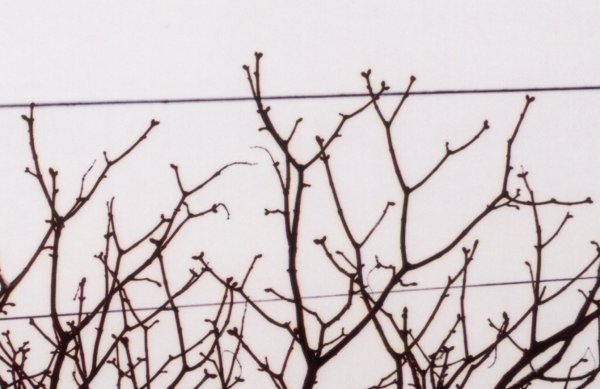In which Boris Johnson might help perpetuate a stereotype
Published at 11:41 am on January 16th, 2006
Filed under: Political.
According to yesterday’s Observer, Boris Johnson is planning to stand for election as Rector of Edinburgh University.*
I’m not among the relevant electorate, but I don’t think it’s a good idea. Aside from the fact that he can hardly spend much time on the job, it’s hardly going to do very much for the university’s reputation. Edinburgh is already known as the university for posh, rich English kids who aren’t bright enough for Oxbridge; voting for someone who carefully cultivates a reputation for being posh and bumbling is hardly going to help.
* I’m quite pleased that I managed to avoid the cliché of adding “…is planning to follow in Gordon Brown’s footsteps by…” Aaargh, damn, I’ve spoilt it now. At least Brown’s Rectorship had a lasting effect: he annoyed the University management so much that they banned students from standing for the post.
Keyword noise: Boris Johnson, Conservatives, Edinburgh, Edinburgh University, Gordon Brown, posh, reputation, Tories.
Or, it gets cold
Published at 2:26 pm on January 15th, 2006
Filed under: Photobloggery.
For once, some photos of my own, rather than from Imperial Russia. These are shots of the snowy scene in my back garden, on December 29th last year. It’s taken them a fortnight to appear because I still use an old-fashioned film camera,* so have to use up the roll, send it off for processing, and spend a while scanning my prints before I can upload them to this place. Hope you like them.





In case you were wondering, the limited variety of views is because: I didn’t really want to go outside in the cold. All these shots were either taken from my back doorstep, or from the bedroom window.
* for photo-geeks: a 1989-vintage Nikon F801 (or N8008 if you’re American) with a rather newer Nikkor 50mm f1.8D lens.
Keyword noise: garden, ice, photography, snow, winter.
Or, the irony
Published at 2:21 pm on January 13th, 2006
Filed under: Artistic, The Family.
The Mother has always been very much a fan of vocal music, choral singing, and that sort of thing. More recently, she’s started singing herself, and now belongs to lots of church singing groups, local choral societies, and so on. She’s never done much solo work, but she often goes off to events and sings in choirs at various places. She’s going to one tomorrow, in fact. There’s one thing about tomorrow’s choral singing event, though, which amuses me greatly.
It’s being held at the local School For The Deaf.
Yes, I know I shouldn’t laugh. I’ve had deaf friends. I know deaf people can enjoy music just as much as anybody else. There are more great deaf musicians than there are, say, great one-handed musicians.* There’s something about the combination of event and location, though, that nevertheless raises a smile.
* Although the philosopher Wittgenstein’s brother Paul was a famous, virtuoso piano player, despite only having one hand.
Keyword noise: choir, concert, singing, The Mother.
In which we ask what the point of obscurity is
Published at 8:48 pm on January 11th, 2006
Filed under: Media Addict.
What makes a word a rude word?
I’m asking because of something I noticed yesterday. Scanning through the telly listings, I noticed that our local paper, the fearless Grimsby Telegraph, won’t print the name of BBC3 show Tittybangbang. Instead, it was rendered “T***ybangbang”.
Now, I know this isn’t as hypocritical as The Sun, which similarly refuses to print the word “tits” despite featuring photos of topless models in almost every issue. It still strikes me as rather silly and pointless, though. It’s hardly likely to offend anyone, particularly as the paper’s digital telly listings are in tiny, almost unreadable print. It’s lip service to an old-fashioned “morality” in which respectable appearances are more important than anything underneath. Even for ruder rude words, it’s not as if asterisks really do hide anything – you all know what this f***ing sentence says.*
** it was “this flowing sentence”, of course. No, really. Honest. Would I lie to you?
Keyword noise: asterisks, bleep, Grimsby Telegraph, newspapers, prude, swearing, The Sun.
Back in the mists of time, I wrote about Jakob Nielsen‘s top ten blog design mistakes. Including: not having your own domain name. My response: there are several sites I read and respect that do do this, but if you want to be completely sure you control your own reputation, you need to control your domain name too.
One thing I didn’t consider, though, is that the people who host your site can, if they want, control what you put on it. Filter out things they don’t like. You could, for example, do what News Corporation subsidiary Myspace have been caught doing: censor links to video-hosting sites, presumably because these sites will soon become News Corp’s competitors when Myspace introduces its own video-hosting service. You might think you can say anything you like on the internet – but if you’re a Myspace user, that apparently doesn’t apply.
Keyword noise: blogging, censorship, Jakob Nielsen, Myspace, News Corporation, Rupert Murdoch, usability, web design.
Talking of ghost stories, I dreamed an interesting one a few nights ago. I liked it so much, in fact, that I rather fancy working it up into a proper story.
No doubt the plot is one that’s been covered many times before; but there aren’t really very many ghost-story plots that haven’t been well worked-over. The way it came out in my dream – which was of someone telling the story, rather than of the story itself – it was a version of one of the most frequently-used plots of all, the Disappearing Fellow-Traveller.* However, it was, well, rather inverted. I don’t want to say any more, because I don’t want to spoil it for you if I ever do manage to finish it.
* At least one classic story of the Disappearing Fellow-Traveller genre made it, in a retold version, into an anthology of supposedly true ghost stories. I can’t remember many details at all about it; but it concerned someone who got chatting to a fellow-traveller in a railway carriage, and found that the stranger was a friend of the people the traveller was going to visit. On mentioning him at the destination, of course, he turned out to have died some time earlier. I really should work this up and look up the names of the writers and books involved. I’ve got a feeling the “true” book was Railway Ghosts And Phantoms by W B Herbert, but I’m not at all sure.
Update, 22nd August 2020: Unsurprisingly, I didn’t do anything with the story idea and now have no memory at all of what it was about. I have a nagging feeling the story I talk about in the footnote was by E Nesbit but I haven’t yet tracked it down.
Keyword noise: ghost stories, literature, story, synopsis, writing.
If you’re not just a regular reader, but the sort of regular reader who reads all the comments too, then you’ll have noticed that Colleague M dropped by the site the other day to let me know that her sister Lydia had been asking for its address. “I think she’ll be upset,” said M, though, “to find you haven’t written about her for some time.”
Well, I originally wrote about Lydia because of her haunting problems, and as they seem to have gone away recently, I haven’t written about them for a month or so. I forgot to mention, though, that I did have a Plan.
As I’ve mentioned before, The Mother has been heavily into genealogy recently, and as part of that she has subscriptions to all sorts of websites, including ones which let you search 19th-century census data. Lydia’s friendly psychic investigator had told her that her ghosts were from the 19th century.* Furthermore, she’d also told Lydia their first names. So, my cunning plan was: get The Mother to look up who actually lived in Lydia’s house back then, to see if we had a match. If not, well, censuses are only held once per decade, so it doesn’t necessarily mean the psychic was wrong; but if we did have a match then that would be very impressive.
Unfortunately, the plan fell through, when Mother found that back in those days, the houses in Lydia’s street weren’t actually numbered. Bugger. Given that I only had a couple of first names to go on, she didn’t really fancy trawling through census returns for the whole street. After all, it’s a fairly long street. And, if we did find a match, it wouldn’t really be particularly good evidence anyway, given that we couldn’t firmly link them to Lydia’s house. All-in-all, I was a bit disappointed, which is why I haven’t mentioned it earlier. But I thought I would. Just in case you’re reading, Lydia.
* they couldn’t really be any older if they’d actually lived in her Victorian-built house
Keyword noise: census, Colleague M, genealogy, ghosts, psychic, history, research.
In which we look up some rules
Published at 2:48 pm on January 7th, 2006
Filed under: Political, Media Addict.
Lots of controversy in the news at the moment about George Galloway, the far-left MP currently competing on Big Brother. The Guardian tried hard to find out who was dealing with constituents’ issues whilst George is busy being on the telly,* but could only get hold of his PR agent, who said she couldn’t really help.
Given that whilst he’s on Big Brother he can’t really be carrying out his day job of attending to Parliamentary business, I wondered if there’s anything in the parliamentary rules that specifically says you have to be available and contactable. The MPs’ Code of Conduct says:
Holders of public office should not place themselves under any financial or other obligation to outside
individuals or organisations that might influence them in the performance of their official duties.
However, I’m not sure if this covers Mr Galloway’s antics. For one thing, although I’d think he could hardly be carrying out any official duties at the moment, “prevent” is hardly the same as “influence”. Moreover, this isn’t actually a rule. It’s merely a General Principle, which “will be taken into consideration when any complaint is received of breaches of the provisions in other sections of the Code.”
The only rule in the Code which might be cover “going on a game show for up to three weeks” is “bringing the House into disrepute”. Which, of course, is a catch-all clause which could cover virtually anything; it’s entirely down to the Standards and Privileges Committee‘s opinion. It seems that, as far as the letter of the law is concerned, there’s no problem with what Galloway is doing.**
* and is out of contact with the outside world, of course.
** and I have no idea of who to complain to if there was.
Keyword noise: Big Brother, George Galloway, parliament, representation, television, reality tv.
In which we remember tradition
Published at 7:42 pm on January 6th, 2006
Filed under: Linkery, In With The Old.
Event of the day: the annual Haxey Hood game, somewhere near the top of the list of vaguely-pagan rural traditions which are largely just an excuse for a drunken mud-wrestle. Information here, here and here.
Keyword noise: Axholme, custom, folk, folk custom, football, Haxey, Haxey Hood Game, Lincolnshire, North Lincolnshire, tradition, village football.
In which we try not to anticipate things
Published at 9:03 pm on January 5th, 2006
Filed under: Media Addict.
I can’t help but feel slightly sickened at pre-obituaries – the endless news reports on the life and actions of famous people who are dangerously ill. It didn’t seem too bad during the slow death of George Best,* but the coverage of Ariel Sharon’s stroke has been terrible. As I’m writing Sharon is in a coma, but definitely alive; but for the past day or so every news report I’ve heard has been about how Middle-Eastern politics will change after he is gone – or, even worse, what his impact on history has been. These really are just obituary reports under another name.
(yes, I know they have a partial excuse that he’s almost certainly retiring – but even so, I still don’t think it’s right)
* or maybe it was just drowned out in my mind by the volume of post-death tributes
Keyword noise: Ariel Sharon, George Best, celebrities, death, jumping the gun, obituary.

 Home
Home




